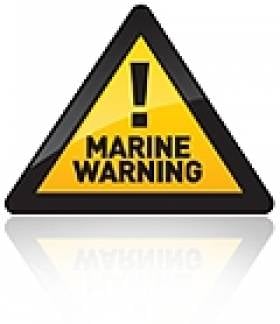Displaying items by tag: Recall
Product Recall Notice for Pirolec L-35 Rocket Parachute Flare Following Fatal Incident
Marine Notice No 7 of 2023 advises of a safety notice issued by the Dutch Safety Board for rocket parachute flares relating to model L-35 or L-35A manufactured by LECEA Sistemas Pirotécnicos Avanzados, S.A. The manufacturer has also issued a recall notice.
All owners of a Red Rocket Parachute Flare from Pirolec, type L-35/L35A, batch 0525/2021–113 are requested to stop using flares from this batch and replace them. If in doubt, operators should contact the manufacturer at [email protected].
This safety alert follows a fatal incident onboard a Dutch vessel when a flare reportedly exploded prematurely during an attempted launch.
It is important to note that the SOLAS Convention requires no less than 12 rocket parachute flares, complying with the requirements of the Life-Saving Appliances Code, shall be carried and be stowed on or near the navigation bridge.
Global Recall Notice Issued for Kannad SAFELINK EPIRBs
The Department of Transport, Tourism and Sport has advise it has been informed that Kannad Marine, the manufacturer of Kannad SAFELINK EPIRBS, have issued a Global Recall Safety Notice of the following affected EPIRB units:
Part No.’s Affected Description Date Range
K1202311 EPIRB SAFELINK Manual+ GPS All
K1202367 EPIRB SAFELINK Auto GPS All
Full notice downloaadable below
Marine Notice: Recall of Mullion COMPACT 150N Lifejackets
#MARINE NOTICE - The Department of Transport, Tourism and Sport (DTTAS) has issued a Marine Notice (No 37 of 2012) advising of the recall of certain lifejackets manufactured by Mullion due to a potential problem with their inflation.
In order to avoid any potential safety issue, Mullion is recalling for inspection all COMPACT 150N ISO 12402 lifejackets which have been sold since 1 December 2011 if they have a yellow valve in the oral tube.
COMPACT lifejackets with a red valve in the oral tube are not affected by this recall.
Owners are warned not to use the affected lifejackets and to return them immediately to the nearest Mullion Lifejacket Service Station or the Mullion factory. See www.mullion-pfd.com/compact-life-jacket-recall-programme for more information.
























































